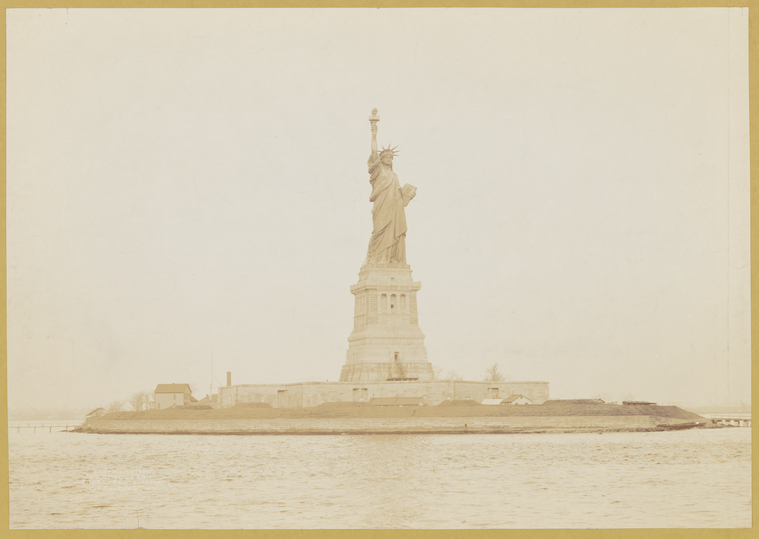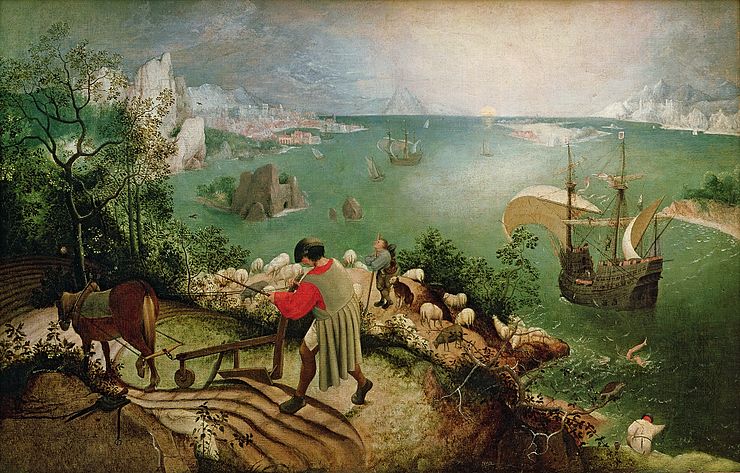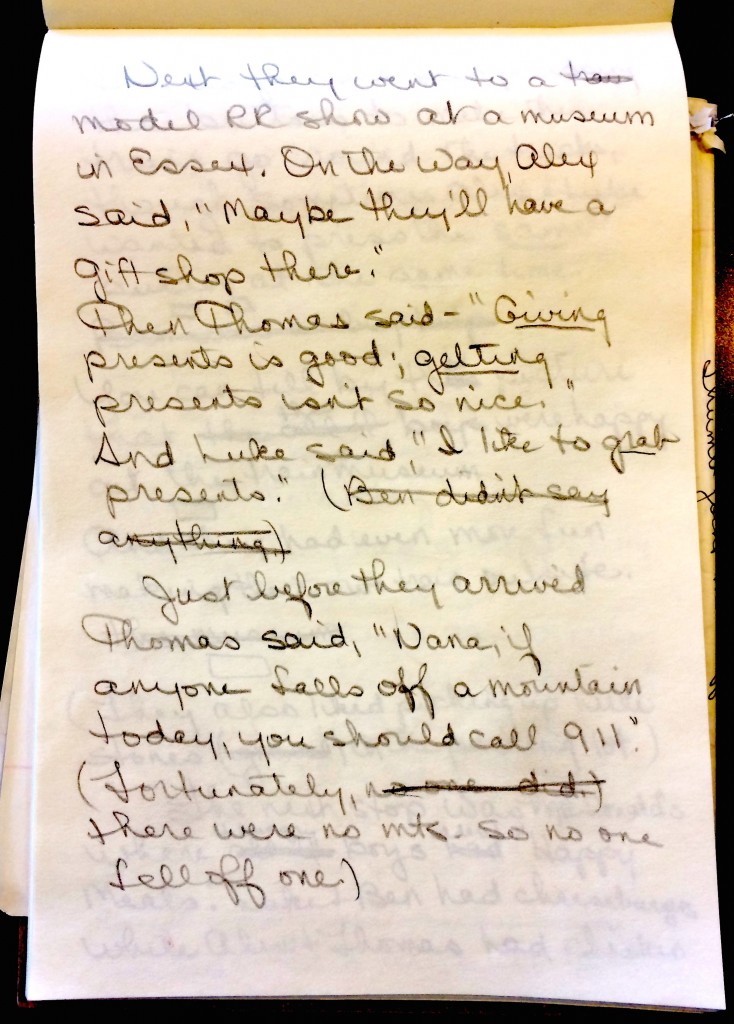It is difficult
– William Carlos Williams, “Asphodel, That Greeny Flower” (1955)
to get the news from poems
yet men die miserably every day
for lack
of what is found there.
It may be “difficult / to get the news from poems,” but you can get poems from the news. Just last month, a sonnet made headlines after the Trump administration announced a new policy refusing green cards to anyone who relies on government assistance. At a press conference, a reporter asked U.S. Citizenship and Immigration Director Ken Cuccinelli whether the new policy necessitated the removal of the famous lines engraved on the pedestal of the Statue of Liberty: “Give use your tired, your poor,/ Your huddled masses yearning to be free” (Giaritelli).
Those lines come from Emma Lazarus’s sonnet, “The New Colossus,” which she composed in 1883 as part of a fundraising campaign for the statue’s pedestal. The journalist invoked the poem as representative of time-honored American values, but Cuccinelli offered a different spin: “Give me your tired and your poor who can stand on their own two feet, and who will not become a public charge,” he asserted. Later, he insisted that the poem referred to “people coming from Europe” (Fortin).
The trouble is, they’re both wrong. Lazarus’s poem did not represent the dominant sentiments of American people at the time it was written, nor does it refer to Europeans who can take care of themselves. Here’s the poem in its entirety:
Not like the brazen giant of Greek fame,
With conquering limbs astride from land to land;
Here at our sea-washed, sunset gates shall stand
A mighty woman with a torch, whose flame
Is the imprisoned lightning, and her name
Mother of Exiles. From her beacon-hand
Glows world-wide welcome; her mild eyes command
The air-bridged harbor that twin cities frame.
“Keep, ancient lands, your storied pomp!” cries she
With silent lips. “Give me your tired, your poor,
Your huddled masses yearning to breathe free,
The wretched refuse of your teeming shore.
Send these, the homeless, tempest-tost to me,
I lift my lamp beside the golden door!”
Although today, the sonnet is celebrated as an expression of the America’s inclusive, democratic ethos and melting pot character, its origins tell a different story, as Professor Emeritus Esther Schorr explains. The highly educated daughter of a wealthy Jewish family, Lazarus was a radical thinker and social activist. She wrote the poem in an era of rising anti-immigrant sentiment in America. The Immigration Act of 1882 set a head tax on immigrants, putting restrictions on criminals, insane, or “any person unable to take care of him or herself,” effectively establishing the first federal immigration bureaucracy. The Chinese Exclusion Act of 1882 put a 10-year moratorium on Chinese labor immigration, marking the first time a group of people were excluded from citizenship by nationality or ethnicity.
But Lazarus wasn’t thinking about these exclusionary acts when she wrote the poem, according to Schorr: she was more concerned about a wave of Eastern European Jews who were fleeing pogroms in Russia. These desperate refugees were definitely not the “people from Europe” Cucinella was referring, and they certainly weren’t in a position to take care of themselves. Lazarus worried about their welfare, as well as that of her own, established Jewish community. She was concerned that a tide of anti-semitism would rise in America in response to the influx of Jewish refugees. Rather than representing the highest ideals of the American people at the time, then, “The New Colossus” fights against their basest fears and xenophobic impulses, invoking the “Mother of Exiles” to urge maternal compassion for the tired, poor, and “tempest-tost.”

II
“The New Colossus” is not the first time a poem has been brought back to life in ways that involve colossal misunderstandings of its origins. A hundred years ago, during the so-called “Red Summer” of 1919, another leftwing activist—Jamaican-born poet Claude McKay—wrote a sonnet called “If We Must Die.”

McKay was responding to the race riots that broke out around the country in the summer of 1919, most famously in Chicago in reaction to the drowning of a black teenager name Eugene Williams who swam into the “whites only” side of Lake Michigan Beach. The ensuing violence did far more damage to black bodies and neighborhoods than to whites (Green). McKay connected the racial tensions to economic ones, explaining that WWI’s “end was a signal for the outbreak of little wars between labor and capital and, like a plague breaking out in sore places, between colored folk and white…It was during those days that the sonnet, ‘If We Must Die,’ exploded out of me” (qtd by Thompson). Here’s his explosive sonnet:
If we must die, let it not be like hogs
Hunted and penned in an inglorious spot,
While round us bark the mad and hungry dogs,
Making their mock at our accursèd lot.
If we must die, O let us nobly die,
So that our precious blood may not be shed
In vain; then even the monsters we defy
Shall be constrained to honor us though dead!
O kinsmen! we must meet the common foe!
Though far outnumbered let us show us brave,
And for their thousand blows deal one death-blow!
What though before us lies the open grave?
Like men we’ll face the murderous, cowardly pack,
Pressed to the wall, dying, but fighting back!
McKay’s near-perfect Shakespearean sonnet has no explicit race markers, but rather articulates traditional British values of noble self-sacrifice for a cause greater than oneself—values that can traced back through English discourse all the way to Shakespeare’s St. Crispin Day speech in Henry IV. But in the heated context of the Red Summer of 1919, historian Nathan Huggins argues, “no one could doubt that the author was a black man” (qtd by Jenkins).

So powerful was the rhetoric of communal courage, legend has it, that Prime Minister Winston Churchill read “If We Must Die” in radio broadcast to British people during WWII, to bolster their spirits and inspire their patriotism. Or did he read it before the American Congress in an effort to enlist them to join the war effort?
So inspiring was the rhetoric of noble self-sacrifice, legend has it, that a WWI soldier was found dead in the battlefield with sonnet folded in his pocket.
So powerful was the rhetoric of racial protest, legend has it, that Senator Henry Cabot Lodge, Sr. (or was it his grandson Henry Cabot Lodge, Jr.?) read the poem in the Congressional Record, citing it as an example of “Negro extremism,” and Lothrop Stoddard quoted poem in his best selling, white supremacist screed The Rising Tide of Color (1920) as evidence that McKay hated America (presumably like all liberals today).
As thrilling as these legends may be, there’s no evidence that any of these things happened. There’s no evidence that Churchill or Cabot Lodge read the poem in any context, and a WWI soldier couldn’t have had poem in pocket, because it wasn’t written until a year after the war ended. Stoddard did quote McKay in The Rising Tide of Color, but he singled out another sonnet, “The White House,” as the target of his racist attack.
The Churchill appropriation legend appears to have been instigated by African American poet Melvin Tolson, who perhaps was attracted to the story because it provided evidence both of McKay’s poetic power and of white imperialist appropriations of black art. And while these legends attest to the poem’s power, what gets lost in them is its roots in the Red Summer of 1919—a specific, historical instance of white violence against black citizens.
III

My final example of the political afterlives of poetry takes us back to 2001, the year that my current first-year students were born. After the terrorist attacks on 9/11, W.H. Auden’s “September 1, 1939,” circulated widely by email. Here are the first and fourth stanzas of the poem, whose title marks the date of Germany’s invasion of Poland and start of WW II:
I sit in one of the dives
On Fifty-second Street
Uncertain and afraid
As the clever hopes expire
Of a low dishonest decade:
Waves of anger and fear
Circulate over the bright
And darkened lands of the earth,
Obsessing our private lives;
The unmentionable odour of death
Offends the September night.
. . .
Into this neutral air
Where blind skyscrapers use
Their full height to proclaim
The strength of Collective Man,
Each language pours its vain
Competitive excuse:
But who can live for long
In an euphoric dream;
Out of the mirror they stare,
Imperialism’s face
And the international wrong.
“With its references to skyscrapers, dazed citizens, and the approach of war, ‘September 1, 1939’ seemed less a poem than a news bulletin,” observes Scott McLemee. (Maybe Williams was wrong and it is possible to get the news from poems.) McLemee explains that the poem resonated with people after 9/11 because it articulated a “complex, disturbed reaction to historical event.” It signaled a deep crisis of confidence in its recognition that the ideals of freedom, liberty, and rationality can’t prevent violence, evil, or war.
Yet as much as readers found solace in the poem, Auden repudiated and came to loathe it. He was disgusted by the sentimentality and false consolations of lines such as:
All I have is a voice
To undo the folded lie,
The romantic lie in the brain
Of the sensual man-in-the-street
And the lie of Authority
Whose buildings grope the sky:
There is no such thing as the State
And no one exists alone;
Hunger allows no choice
To the citizen or the police;
We must love one another or die.
Auden, who admired discretion, ambivalence, and irony, grew embarrassed by the vatic confidence of these lines, which seem to say: Here I am, the wise, all-knowing poet, telling you the shining truth. “I don’t want it to be reprinted in my lifetime,” he later said, admitting, “It may be a good poem, but I shouldn’t have written it” (qtd by McLemee).
IV
What lessons can we take away from the chaotic political afterlives of these three poems? Their complicated histories demonstrate that there is no single moment of truth for a poem. The poet’s original idea or intention does not set limits on what a poem can mean or do in the world. Poems are active, living texts that continually generate new meanings in new political contexts. As Auden himself wrote in “In Memory of W. B. Yeats“:
The words of a dead man
Are modified in the guts of the living.
Acknowledgements
Grateful appreciation to Lee M. Jenkins, University College Cork, who did the painstaking research to explode the myths about Claude McKay’s “If We Must Die,” compiling his findings in the excellent article, “‘If We Must Die’: Winston Churchill and Claude McKay, ” Notes and Queries (September 2003): 333-337.









